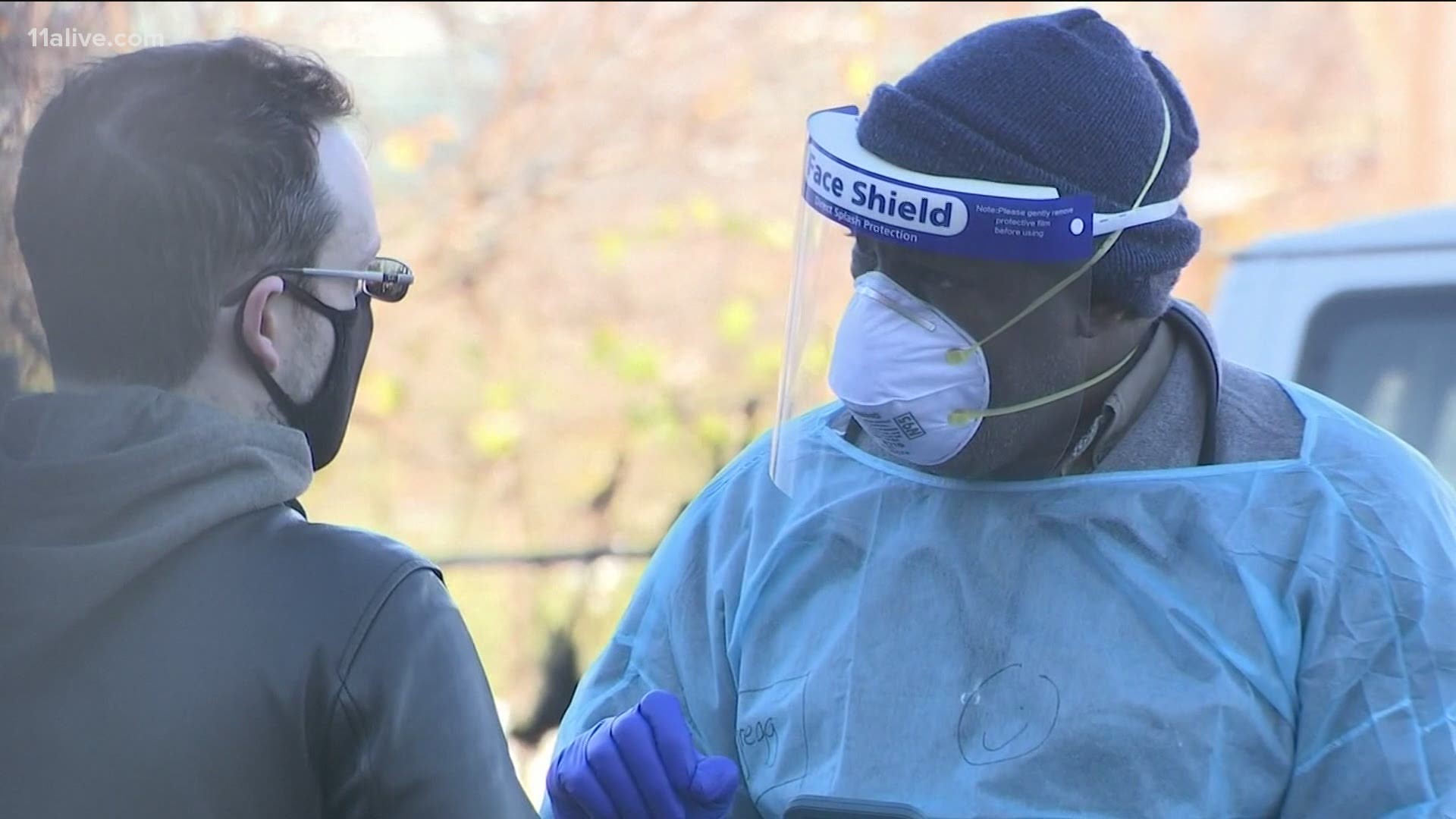ATLANTA — The Centers for Disease Control and Prevention is ramping up efforts to identify COVID-19 variants as more are detected around the world.
In Georgia, the Department of Public Health confirmed there are at least 19 cases of the new variant that originated in the United Kingdom.
Scientists have said that the Pfizer and Moderna vaccines still appear to work against variants but now a lot of the focus is also being put on what these more contagious cases could mean for testing.
Greg Gibson, a professor of biological sciences at Georgia Tech, helped set up a COVID-19 testing site on the campus back in June. So far, they've been able to test 200,000 people. Now, he says those tests are being developed and tweaked as variants become more prevalent.
"The whole landscape of testing is going to change in the next three to four months as companies start coming out with very rapid $1 or $2 tests to perform in five or fewer minutes," said Gibson.
According to the CDC and Labcorp, a company that provides PCR tests, right now, there is no proof that variants have an impact on testing, but the possibility of more mutations popping up has scientists working around the clock.
Some of those scientists work on Georgia Tech's campus. Students and scientists there are working closely with the CDC to bring possible changes to those tests.
"We're about to give students the option of contributing to that program," said Gibson. "They'll be able to opt-in and provide a second saliva sample that will be used to validate the tests being developed."
The CDC explained that PCR tests have multiple targets to detect the virus, so if a mutation impacts one of the targets, other PCR targets should still work.
According to the CDC, "Most commercial reverse-transcription polymerase chain reaction (RT-PCR)-based tests have multiple targets to detect the virus, such that even if a mutation impacts one of the targets, the other RT-PCR targets will still work."
Gibson said that if COVID-19 vaccines and tests have to be tweaked, it will be relatively easy to do so.
"It'll have to be a universal test because nobody will know which variant they have upfront," Gibson said. "I don't think that will be difficult. One of the beauties of the RNA-based vaccine is they're relatively quick to change, so they can be adapted very quickly and companies are already doing that. So they'll be able to build that variation for these vaccines, which is remarkable... its new technology but its very flexible."
He adds that making testing so accessible at Georgia Tech has kept incidents on campus below 1% on three different occasions. So he says making tests and vaccines inexpensive and accessible to the rest of the community could help us get closer to herd immunity in the fall.
"They're not a complete solution on their own... they're part of a whole scheme of people continuing to observe social distancing, wear masks, and get vaccinated quickly," he explained.

